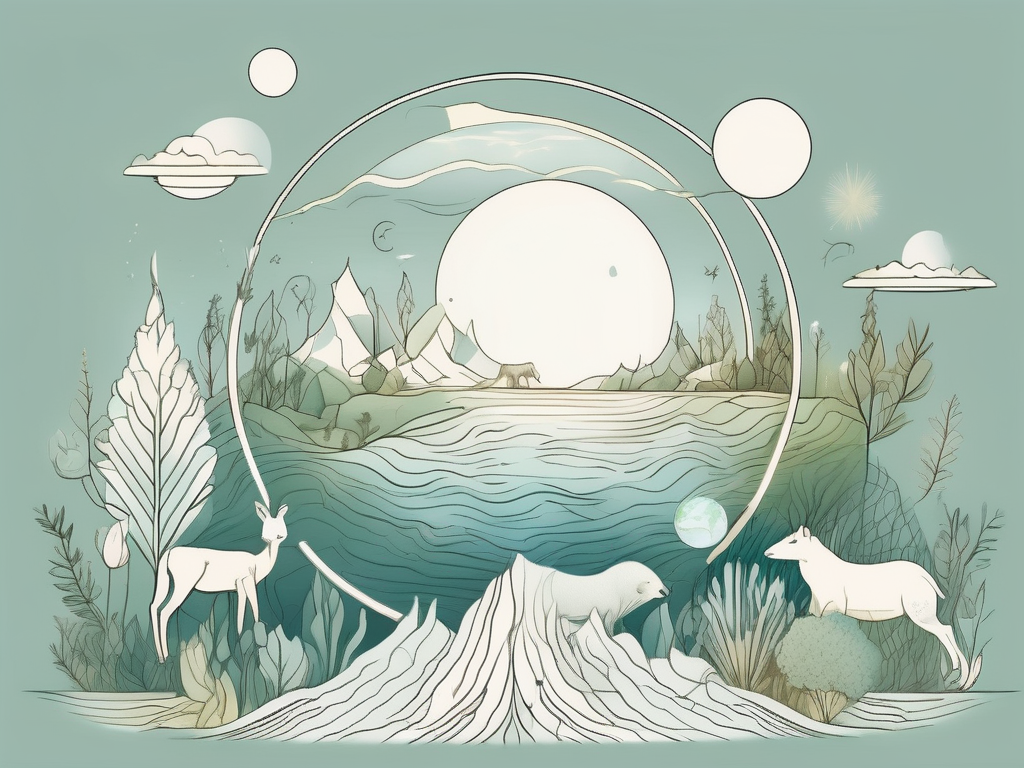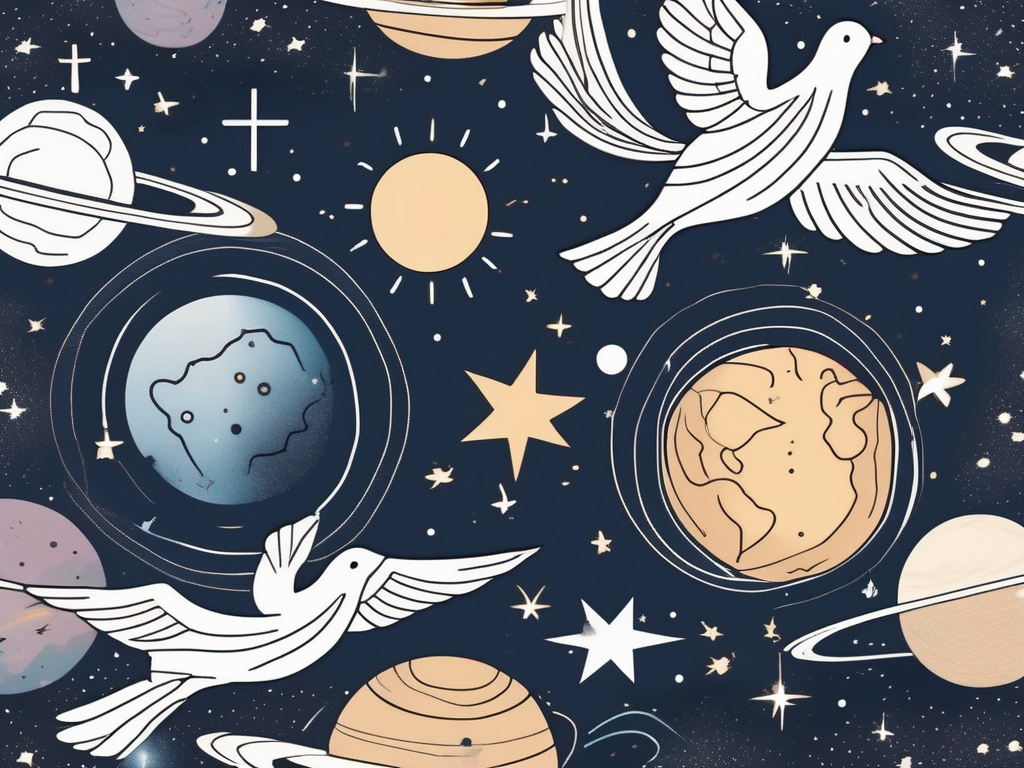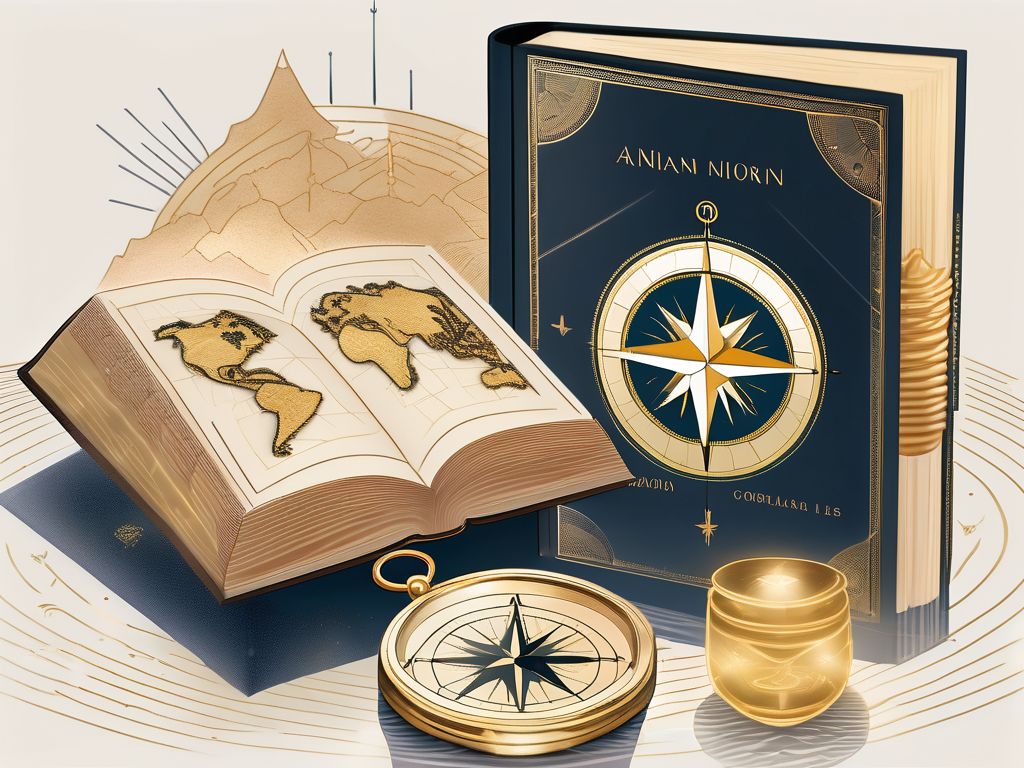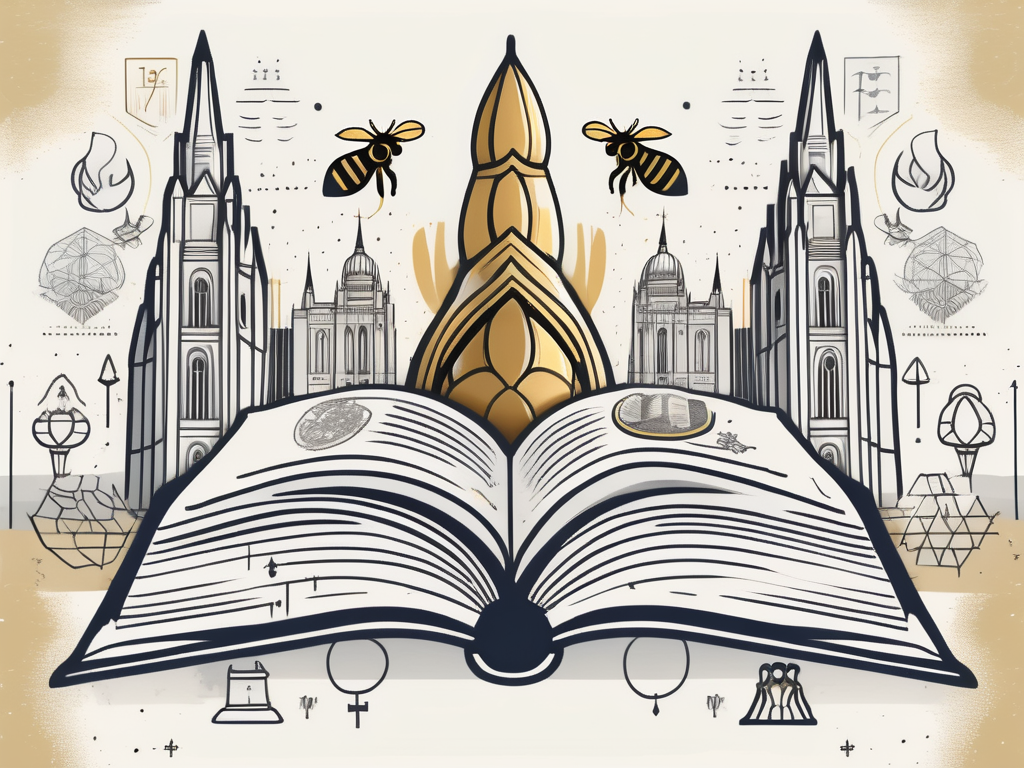The topic of creation is a fascinating one that has captivated humanity for centuries. In today’s article, we will delve into what the Bible has to say about creation and explore the different interpretations and theological implications it holds. So, let’s embark on this journey of discovery together!
Understanding the Biblical Account of Creation
When it comes to the biblical account of creation, the book of Genesis takes center stage. In this timeless narrative, we are presented with a vivid description of how God brought the universe into existence. From the creation of light to the formation of land and sea, the Genesis creation story paints a captivating picture of divine craftsmanship.
This narrative not only offers a glimpse into the order and beauty of creation but also establishes the overarching theme of God’s sovereignty in shaping the world we inhabit.
As we delve deeper into the Genesis creation narrative, we discover a rich tapestry of symbolism and poetic language that invites us to contemplate the profound mysteries of our existence. The opening chapters of Genesis outline the creation story in a poetic and symbolic manner, inviting us to explore the profound depths of God’s creative power.
The Genesis Creation Narrative
The opening chapters of Genesis outline the creation story in a poetic and symbolic manner. We read of how God, in a series of carefully orchestrated acts, brings forth the heavens, the earth, and all living creatures. This narrative serves as a foundation for understanding God’s creative power and the intended harmony between humanity and the natural world.
As we immerse ourselves in the poetic language of Genesis, we are transported to a time when the world was formless and void, and darkness covered the face of the deep. In this primordial state, God’s spirit hovered over the waters, ready to bring forth life and order. With each divine command, the universe unfolded, revealing the intricate beauty of God’s design.
From the creation of light on the first day to the formation of the sun, moon, and stars on the fourth day, the Genesis creation narrative takes us on a journey through the unfolding of time and space. We witness the separation of the waters, the emergence of dry land, and the flourishing of vegetation. The seas teem with life, and the skies are filled with birds of every kind. Finally, God forms land animals and, in His image, creates humanity, giving them dominion over the earth.
The Role of God in Creation
Throughout the biblical account of creation, God assumes a central role as the ultimate creator and sustainer of all things. He is depicted as the one who eternally existed before the world came into being and spoke it into existence. The divine handiwork is evident in the intricate details of our universe, showcasing God’s wisdom and purpose.
As we reflect on the role of God in creation, we are reminded of His infinite power and the depth of His love for His creation. The very act of creation reveals God’s desire for relationship and His intention to share His divine nature with humanity. We are not mere spectators in this grand cosmic drama but active participants, called to steward the earth and cultivate its resources in harmony with God’s purposes.
Understanding that God is the source of creation invites us to appreciate the world around us as a reflection of His majesty. It reminds us of our inherent connection to the divine and the responsibility to be good stewards of the earth. As we marvel at the wonders of nature, from the intricate patterns of a flower petal to the vastness of the night sky, we are invited to join in the chorus of praise for the Creator who brought it all into being.
Different Interpretations of the Creation Story
While the biblical account of creation is revered by many, there are different interpretations that believers hold regarding its literal or metaphorical nature. Let’s explore these varying perspectives.
The creation story found in the book of Genesis has been a subject of contemplation and debate for centuries. It has sparked curiosity and inspired countless discussions among theologians, scientists, and believers alike. The interpretations of this ancient narrative are as diverse as the individuals who engage with it.
Literal Interpretation
Some individuals interpret the creation story as a literal account of how the world came into existence. They perceive each of the six days of creation as a 24-hour period and consider the events described in Genesis to have occurred exactly as written.
This viewpoint emphasizes the historicity of the Genesis narrative, asserting that it provides a factual and detailed account of how God formed the earth and all living things. Those who hold this interpretation often prioritize a “young-earth” perspective, claiming that the universe is relatively young, with an age of around 6,000 to 10,000 years.
Supporters of the literal interpretation find comfort in the certainty it provides. They believe that the creation story serves as a foundation for their faith, reinforcing their belief in a powerful and intentional Creator. For them, the intricate design and complexity of the natural world are a testament to the divine craftsmanship described in Genesis.
Metaphorical Interpretation
On the other hand, there are those who view the creation story as a metaphorical or allegorical account. They argue that the text should not be read in a strictly literal sense but rather as a symbolic portrayal of God’s creative power and authority over the cosmos.
This perspective recognizes the beauty of poetic language used in the narrative and attributes deeper theological meaning to the creation story. It allows for flexibility in understanding the passage of time and aligns with scientific theories, such as the Big Bang and evolution, as complementary to the biblical account.
Advocates of the metaphorical interpretation appreciate the richness and depth of symbolism present in the creation story. They see it as an invitation to explore the mysteries of existence and the relationship between the divine and the natural world. For them, the creation story becomes a source of inspiration and contemplation, encouraging a broader understanding of God’s creative work.
While the literal and metaphorical interpretations may seem divergent, they both stem from a desire to understand and appreciate the profound significance of the creation story. These interpretations reflect the complexity of human thought and the diverse ways in which individuals engage with sacred texts.
Theological Implications of the Creation Story
The creation story in the Bible has profound theological implications that extend beyond the mere account of how the world began. Let’s explore two significant concepts related to creation: the concept of sin and fall, and the doctrine of original sin.
The Concept of Sin and Fall
In the creation story, we encounter the concept of sin and the fall of humanity. This narrative describes the disobedience of Adam and Eve, resulting in the introduction of sin into the world and the subsequent brokenness of human nature.
When Adam and Eve chose to eat from the forbidden tree, they not only disobeyed God’s command but also disrupted the perfect harmony that existed between humanity and the divine. This act of rebellion brought about a rupture in the relationship between God and humanity, leading to the entrance of sin into the world.
The concept of sin and fall in the creation story serves as a cautionary tale, reminding us of the consequences of disobedience and the far-reaching effects of our actions. It highlights the inherent moral responsibility we have as human beings and emphasizes the importance of seeking reconciliation with God and one another.
Moreover, the concept of sin and fall also reveals the fragility of human nature and our susceptibility to temptation. It underscores the need for humility and self-reflection, urging us to recognize our own limitations and to rely on God’s grace for redemption.
The Doctrine of Original Sin
Building upon the concept of the fall, the doctrine of original sin teaches that humanity inherited a sinful nature from Adam and Eve. This belief posits that all human beings are born with a predisposition toward sin, leading to a separation from God.
The doctrine of original sin, derived from the creation story, provides a framework for understanding the human condition and our need for salvation. It asserts that, apart from divine intervention, we are incapable of restoring our broken relationship with God.
Original sin does not imply that every individual is personally responsible for Adam and Eve’s disobedience, but rather that the consequences of their actions have had a universal impact on the human race. It acknowledges the fallen state of humanity and the need for a savior to redeem and restore us to a right relationship with God.
Furthermore, the doctrine of original sin highlights the importance of baptism in Christian theology. Baptism is seen as a means of cleansing and rebirth, washing away the stain of original sin and initiating the believer into a new life in Christ.
While the concept of original sin may be seen by some as a pessimistic view of human nature, it also offers hope. It recognizes the brokenness within us and points us to the solution found in Jesus Christ, who through his sacrificial death and resurrection offers forgiveness and the possibility of restoration.
In conclusion, the creation story not only provides an account of how the world came into being but also presents us with profound theological concepts. The concept of sin and fall reminds us of our moral responsibility and the need for reconciliation, while the doctrine of original sin highlights our inherent brokenness and our need for a savior. These theological implications invite us to reflect on our own lives and seek a deeper understanding of God’s redemptive plan for humanity.
Creation in Other Books of the Bible
While the Genesis creation narrative is the most prominent account of creation, other books of the Bible offer additional insights and perspectives on this awe-inspiring topic. Let’s briefly explore creation as described in the Psalms and the New Testament.
Creation in the Psalms
The book of Psalms contains numerous passages celebrating God’s creation. Through poetic language, heartfelt prayers, and songs of praise, the Psalms invite us to marvel at the majesty of the natural world and express gratitude for God’s creative power.
These psalms not only heighten our sense of wonder and awe but also emphasize the intimate connection between humanity and the rest of creation. They remind us that all of creation sings God’s praises and points us toward a deeper understanding of our place in the world.
Creation in the New Testament
In the New Testament, creation is often referred to in the context of Christ’s redemptive work, highlighting the belief that through Him, all things are reconciled to God. The apostle Paul, for example, writes in Colossians 1:16-17 that all things were created by Christ and are sustained through Him.
These passages emphasize Christ’s role as the preeminent agent of creation and the focal point of God’s plan for the world. They remind us that creation is not merely a distant event but an ongoing process intertwined with the divine purpose of salvation.
The Bible’s Creation Story and Modern Science
The biblical creation story has often sparked debates regarding its compatibility with scientific theories and discoveries. Let’s explore two key points of contention: creationism versus evolution and the age of the earth and the universe.
Creationism vs. Evolution
Creationism posits that the biblical account of creation should be taken literally, and it rejects the notion of evolution as an explanation for the diversity of life on Earth. Creationists argue that God created each species separately and that there is no substantial evidence for one species evolving into another.
On the other hand, proponents of evolution argue that scientific evidence, such as fossils and genetic research, supports the theory that species have gradually evolved over millions of years through natural selection and genetic mutations.
While the debate between creationism and evolution persists, many individuals and religious communities have found ways to reconcile their faith with scientific discoveries, recognizing them as complementary paths to understanding the complexity of creation.
The Age of the Earth and Universe
The age of the earth and the universe is another area of contention between biblical interpretation and scientific findings. Some believers interpret the genealogies and historical accounts in the Bible to calculate the earth’s age to be around 6,000 to 10,000 years old.
Contrastingly, scientific calculations based on radiometric dating and cosmic background radiation suggest that the earth and the universe are billions of years old.
It is essential to remember that the Bible’s primary purpose is to convey spiritual truths and guide our relationship with God. The age of the earth is not a central theme in the biblical creation narrative and should be approached with an open mind, seeking understanding from both faith and science.
In Conclusion
The Bible’s account of creation holds profound significance and prompts us to reflect on the origins of the world and our place in it. Whether we interpret the creation story literally or metaphorically, it invites us to marvel at the beauty and complexity of the universe and embrace our role as stewards of God’s creation.
Moreover, the theological implications of the creation story remind us of the need for redemption and the importance of restoring our broken relationship with God. Additionally, other books of the Bible provide further insights into creation, inviting us to appreciate the natural world and its connection to our faith journey.
While debates concerning the compatibility of the biblical creation narrative with modern science persist, it is crucial to approach these discussions with openness and respect, recognizing that faith and reason can coexist. The Bible’s creation story and modern scientific discoveries can both contribute to our understanding of the world, inspiring awe and wonder in the face of the divine.
So let us continue to explore, question, and seek a deeper understanding of what the Bible says about creation, recognizing the endless mysteries and beauty that surround us.












